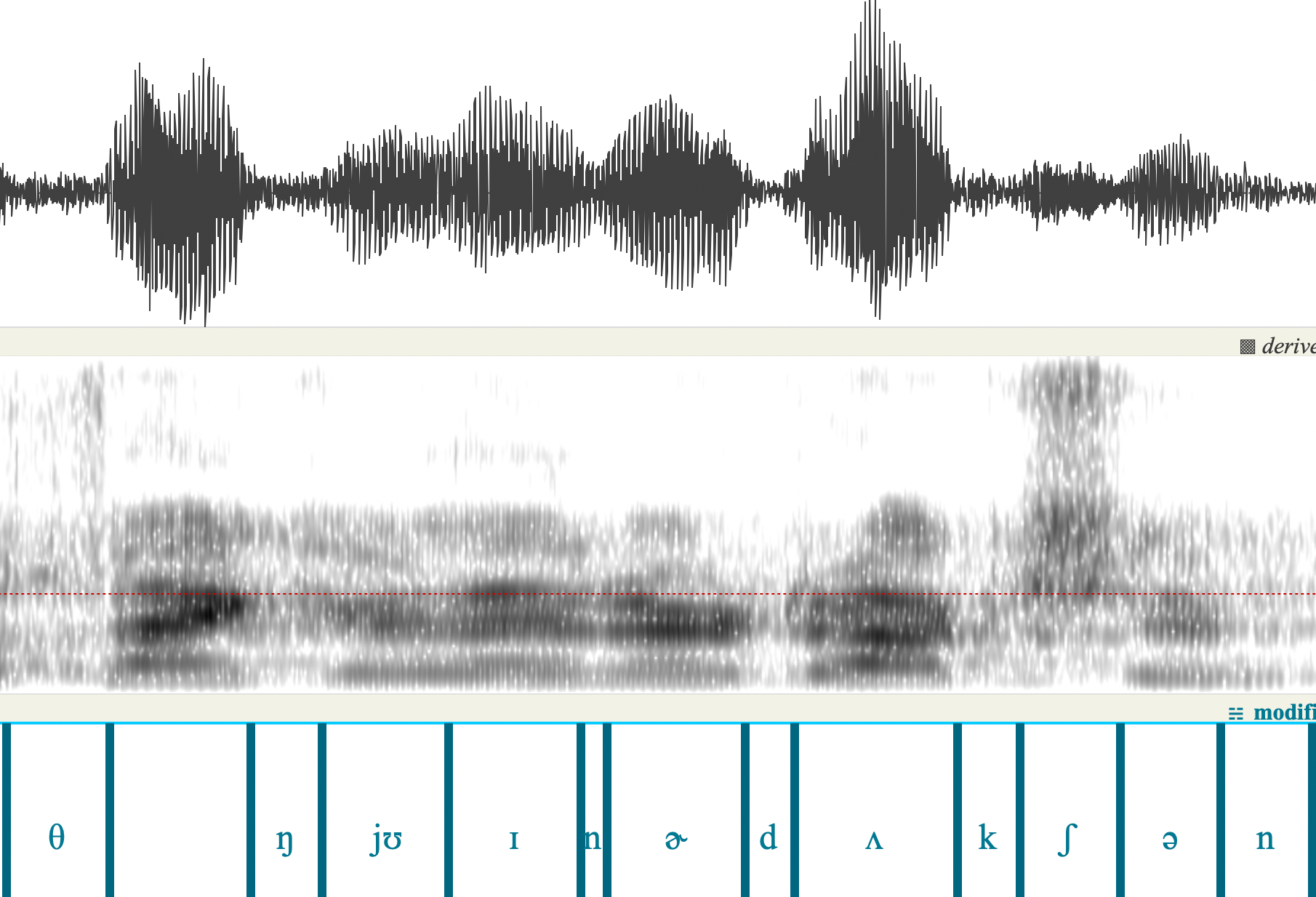"Gentle onsets" are everywhere
« previous post | next post »
President Joe Biden is known for having overcome a serious stuttering problem as a child — see e.g. "Biden’s Stutter: How a Childhood Battle Shaped His Approach to Life & Politics", or "Joe Biden's history of stuttering sheds light on the condition". It also seems clear that the techniques that he developed to overcome the problem are still present in his speech today, as I discussed in "Calling all linguists", 10/21/2023. My conclusion in that article, agreeing with others more knowledgeable than I am, was that the main effect is selective lenition, probably related to what are called "gentle onset" techniques.
But what's less clear is whether this effect is different in kind from things that happen in (almost?) everyone's speech.
We don't need to listen very long to find apparent examples Biden's speech. For example, in second phrase in a recent campaign event in Las Vegas:
hello hello hello
Pablo thank you ((for the)) introduction
And in the next phrase, we get
you know uh
you immigrated to America as a teenager
graduated ((from)) high school ((and)) spent four years ((as)) a union apprentice
Some of the lenited/omitted syllables are in the middle of words — a few seconds later, we get
…represen((tat))ive Steven Horsford…
Or again:
…represen((tat))i((ve)) Susie Lee…
Now let's compare the speech patterns of some other public figures, starting with the opening of Rishi Sunak's interview last fall with Elon Musk:
uh we feel- we feel ver((y)) priv((ileged and)) ver((y)) excited to have you
Zeroing in on the "very privileged and very excited" part:
Early in Musk's response to the first question, we get
you know ((the)) poin((t)) a((t)) which someone can see
The first two words are roughly [junoð];
…and the next two are roughly [poɪnəwɪt͡ʃ];
For more, let's turn to a LLM's interview with Rishi Sunak and Bill Gates. The AI's second question, read by Gates is:
What's the most important piece of advice
you've ever received and how's it ((influenced))
your career and approach to life?
Gates' pronunciation of "influenced" is not a lenition, but a regular type of speech error. Perhaps under the influence of the following "your", the final /nst/ of "influenced" palatalizes to [nʃ] — "influensh" in eye-dialect…
But Gates also give us plenty of lenitions → omissions, for example in this phrase:
I was a little too-
I was very intense on myself and I tried to apply that
t((o)) other people and
…where "to other" comes out as [dʌðɚ]:
Turning back to Elon Musk, here's an answer about advertisers and censorship on X, from Musk's recent interview with Don Lemon. I'll supply an orthographically full transcription, and let you decode the lenitions for yourself:
if-
if- if- if given a choice
where
and advertiser is saying like you have to censor all this content ((that-))
on the platform irrespective of where the advertising appears
then o- our answer will be like you-
you- you can choose where you want your advertising-
what you want your advertising to appear next to
you can't insist of censorship of the entire platform
if you insist on censorship of the
entirely platform
even where your advertising doesn't appear
uh then uh
obviously we won't- we will not uh
want them as an advertiser
It's not easy — this clip sounds roughly like [ɑvsu], but it's really "obviously" (co-articulated with the /w/ of "we"…):
For lagniappe, here's his response to the follow-up question:
well first of all uh
almost all of our advertisers are coming back
platform
so it's a very short list of
advertisers who are not coming back ((to the)) platform
um
and uh
our advertising revenue is rising rapidly
uh and
our subscription revenue is rising rapidly,
and I feel very optimistic about the future of the X platform
Obviously there are many dimensions of variation here, and a lot of work to do if we want an accurate picture whose speech is doing what, when, where, and why.

Daniel Deutsch said,
March 24, 2024 @ 4:22 pm
I noticed another anti-stuttering technique in Biden’s recent state of the union speech. He often sounded almost like he was singing.
Mark Liberman said,
March 24, 2024 @ 5:41 pm
@Daniel Deutsch: "I noticed another anti-stuttering technique in Biden’s recent state of the union speech. He often sounded almost like he was singing."
He's not the only one, or even the most striking one — see "Trumpchant in B flat", 10/2/2016.
And presumably Donald Trump is not dealing with a speech impediment?
David Marjanović said,
March 24, 2024 @ 7:22 pm
The famed [ɾ̃].